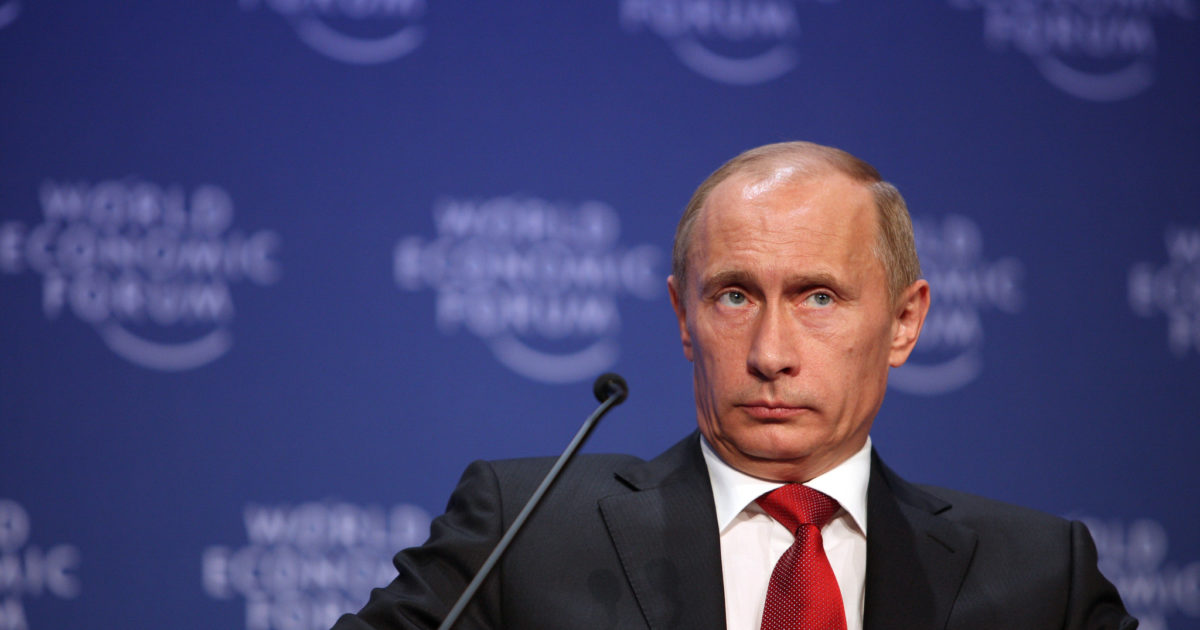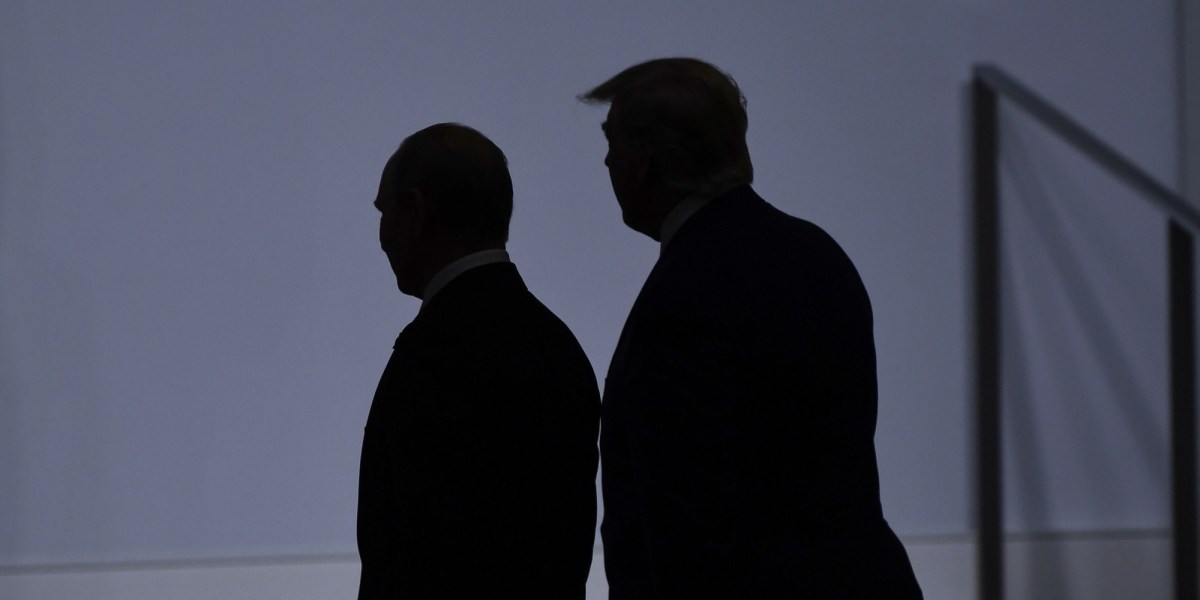
Russia Report: Explaining Moscow’s Actions Would Expose the West’s Hypocrisy

Russia Report: Explaining Moscow’s Actions Would Expose the West’s Hypocrisy | Novara Media
Moscow’s actions bear more than a passing resemblance to those of the UK and its allies. To admit this is not to excuse Russia, writes David Wearing; it is the first step in formulating a response to today’s political challenges that really does serve the needs of international security.
National security discourse is a serious business for serious people, or so those engaged in it would have us believe.
In reality, that seriousness is rarely more than a veneer, concealing layers of self-serving ideology, wrapped around a core commitment to state power, rather than public safety. The way the political class talks about Vladimir Putin’s Russia is a good example of this.
Last week’s headlines were dominated by the release of a report from Parliament’s intelligence and security committee into Russian interference in British politics. The report’s conclusions on disinformation-peddling, influence-buying, and the UK government’s response have been amply covered elsewhere. What’s more interesting is the now-familiar meta-narrative around UK-Russia relations that frames the report’s arguments.
Pedalling fantasies.
When analysing a security threat, one might assume that it would be worthwhile to assess our adversary’s motivations and the strategic rationale behind their actions. However, the committee makes no serious attempt to do so. Instead, the threat Russia poses is described as “fundamentally nihilistic” and shaped by “paranoia” about Western intentions. Moscow, the report states, is committed to “an undemocratic ‘might is right’ world order”, in stark contrast to the ‘rules-based international order’ that the democratic West espouses.
Remember, this is not a propaganda document for broad public consumption, but one that will only be read by a sub-section of the political class. You would expect politicians to tell the public that our national enemies are mad, wilful wreckers, while we ourselves are pure as the driven snow. The surprise is to find them telling themselves the same fairytales.
Almost as an embarrassed aside, the report mumbles briefly that Russia “wishes to be seen as a resurgent ‘great power’”. This is a point so widely understood by informed observers that it would have been absurd to omit it altogether, much as the committee might have wanted to. However, in terms of making sense of what is driving Moscow, it is deserving of far more substantive engagement than a throwaway sentence. Perhaps what is awkward here is that Moscow’s motivations and actions as an international power bear more than a passing resemblance to those of the UK and its allies.
The report frames post-Soviet history as a story of the West seeking partnership with Moscow, only to be inexplicably rebuffed. But in actual fact, the West exploited political disarray and economic collapse in Russia to effect an opportunistic eastward advance, through NATO and EU enlargement, thus violating multiple assurances given to Mikhail Gorbachev as the Cold War wound down. The objective was to expand the West’s geopolitical domain and to limit any future revival of Russian power. Predictably, Russia objected and has been trying to break out of these constraints ever since. It is a squalid geopolitical power struggle that both sides are engaged in, not one that Moscow has generated out of thin air.
The same hypocrisy.
It is also worth delving into the distinction the report sets up between a Britain committed to a ‘rules-based international order’ and a Putin regime intent on tearing that order down. Again, this is a familiar theme in the broader national security discourse, where the term ‘rules-based international order’ is repeated like an incantation. Again, it is ahistorical nonsense.
It is clear that the Western powers are committed to a world order largely shaped by institutions such as NATO, the UN Security Council, the IMF, the World Bank and the European Union. These are, after all, institutions dominated by the Western powers. It is also clear that when the rules that are supposed to define this order begin to chafe, those powers are happy to dispense with them.
Indeed, there was precious little sense of a “Rules Based International Order” when the US and UK launched an unprovoked war of aggression to conquer Iraq in 2003. Nor has there been over the last five years, as those same powers enabled a Saudi bombing campaign in Yemen, characterised by widespread and systematic violations of international law. Palestinians see little evidence of a “Rules Based International Order” when Israel spends decades colonising the occupied territories in flagrant violation of the Fourth Geneva convention, with arms and diplomatic cover provided by the West under the veil of a “peace process”. These are merely the most egregious recent examples of violations which are, for the West, the norm, not the exception.
What’s interesting and revealing here is that Putin himself claims to be committed to the supposed ‘rules-based international order’, as opposed to a West, which he accuses of wrecking that system. Putin has been explicit on many occasions about his objection to the West’s failure to respect the principle of state sovereignty, for example in the invasion of Iraq.
Indeed, the 1990s and 2000s saw many attempts by the Atlantic powers to carve out exceptions to the sovereignty principle in order to justify their exertions of military power. Putin’s hypocrisy here mirrors that of the West, as he violates state sovereignty at will, from Ukraine to Libya, while building up a monumental record of wartime atrocities, from Chechnya at the start of his reign to Syria in the present day.
The antagonism between Russia and the West, therefore, is hardly a Manichean clash of good versus evil. Both sides seek to carve out domains of influence, often through military aggression (most notably in the Middle East); both make opportunistic appeals to international norms and rules and then violate them whenever it is convenient, and both have a sense of entitlement to maximum strategic power in the world system.
To explain is not to excuse.
There is something important to be gained from acknowledging the parallels between the motivations and actions of these competing powers. The exercise allows us to see the issue of national security as one of a dynamic between states, rather than inexplicable aggression from one toward an innocent other. Once that is understood, we can begin to look at how this antagonism might be de-escalated through dialogue and negotiation, rather than ramped up through mutually-reinforcing belligerence.
During the war on terror, those of us who attempted to offer an analysis of the roots of the terrorist threat were accused by the state and its outriders of seeking to excuse and justify the crimes of the enemy of the day. That enemy was, once again, presented as simply ‘nihilistic’, rather than arising from a historical context and driven by specific objectives.
As we now know, the war on terror generated an intensification of the very threat that it claimed to address. If we can rise to the basic level of grasping that to explain is not to excuse, then perhaps we can formulate a response to today’s political challenges that really does serve the needs of international security.




